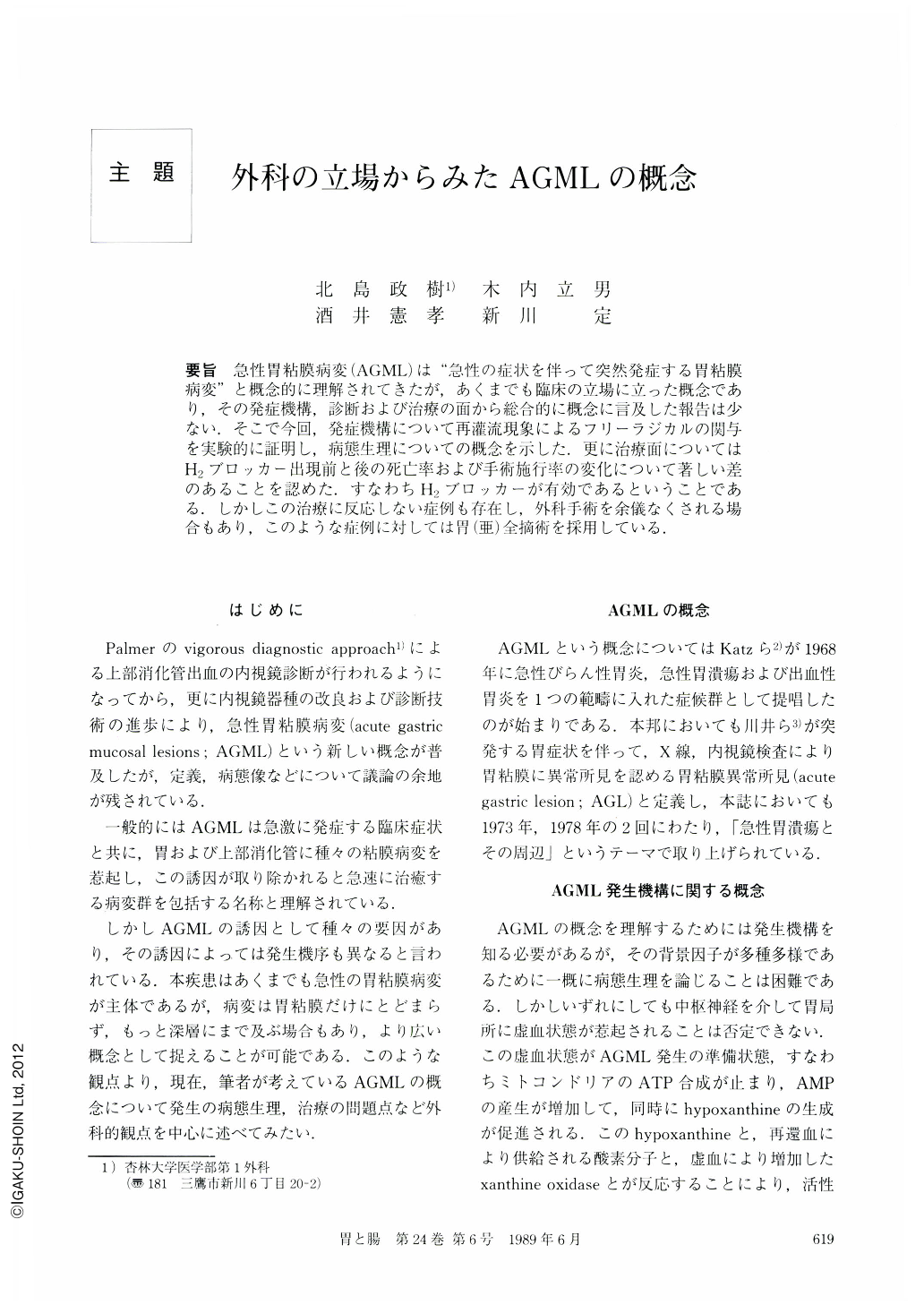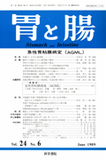Japanese
English
- 有料閲覧
- Abstract 文献概要
- 1ページ目 Look Inside
要旨 急性胃粘膜病変(AGML)は“急性の症状を伴って突然発症する胃粘膜病変”と概念的に理解されてきたが,あくまでも臨床の立場に立った概念であり,その発症機構,診断および治療の面から総合的に概念に言及した報告は少ない.そこで今回,発症機構について再灌流現象によるフリーラジカルの関与を実験的に証明し,病態生理についての概念を示した.更に治療面についてはH2ブロッカー出現前と後の死亡率および手術施行率の変化について著しい差のあることを認めた.すなわちH2ブロッカーが有効であるということである.しかしこの治療に反応しない症例も存在し,外科手術を余儀なくされる場合もあり,このような症例に対しては胃(亜)全摘術を採用している.
Acute gastric mucosal lesions (AGML) are a wellrecognized complication of a variety of diseases, including surgery, drug inducement and stress. Several conceptual explanations have been proposed, i.e., gastric acid hypersecretion and destruction of defensive factors of the gastric mucosa.
But these concepts on AGML is not always consistent in pathophysiology, diagnosis and management. The purpose of this study is to elucidate the most recent concept on AGML with special reference to pathophysiology and management from the viewpoints of surgery. Recently, the focus of studies on the development of AGML has shifted gradually from the balance between aggressive and defensive mechanisms of the gastric mucosa to reperfusion injury following ischemic change of the gastric mucosa. Change of CoQ10 anion radical and SOD level in gastric mucosa, produced by clamping caeliac axis by mini-clip in rats led to the development of AGML. However, it is extremely difficult to elucidate the pathophysiological mechanism of AGML on clinical and experimental bases because of various causative factors involved.
AGML in general is considered to develop suddenly presenting with gastric symptoms and acute gastric lesions. These gastric lesions are endoscopically observed as acute erosive gastritis, acute ulcer and hemorrhagic gastritis. Most of them improve by conservative management with H2 receptor antagonist and secretins. But in some, conservative management being ineffective, such surgical treatments as selective vagotomy and wide resection of the stomach become mandatory. Accordingly, comparative studies were experimentally performed to elucidate reasonable and physiological procedures in conservative and surgical managements. Conservative management with H2 receptor antagonist was demonstrated to be more effective than surgical management for AGML. H2 receptor antagonist had a pronounced inhibitory effect on acid secretion. In addition, it was found to maintain and improve local blood flow in the gastric mucosa. In contrast, vagotomy performed with the intention to decrease acid secretion, in fact, proved ineffective in maintaining blood flow under stressful situation. These results indicate that gastric defensive mechanism is destructed after vagotomy.
Based on these results, (near) total gastrectomy, instead of vagotomy, is considered treatment of choice for bleeding AGML.

Copyright © 1989, Igaku-Shoin Ltd. All rights reserved.


